Overview Partners
P1 Universität Bremen, P2 Ilia State University, P3 Alpen-Adria-Universität, P4 University of Limerick, P5 Gazi Universitesi, P6 Batumi Shota Rustaveli State University, P7 Oranim Academic College of Education, P8 The Academic Arab College for Education, P9 Ateneo de Manila University, P10 De la Salle University
Founded in 1971, UniHB recently celebrated its 40th anniversary, and currently has almost 20,000 students, with 15 per cent coming from other countries. Some of the ground‐breaking educational concepts implemented in those early days have since become established features of modern university education all over Germany; for example interdisciplinary study and research, research‐based teaching, and responsibility towards society. Currently the University of Bremen has the status as a University of Excellence. UniHB also invests significantly into science education research and science teacher education. The Institute of Science Education (IDN) is internationally well known, particularly in the field of chemistry education. The chemistry education group conducts internationally published research, while also developing school and university textbooks and teaching materials in cooperation with different publishers. The researchers work intensively on teachers’ professional development, grounded in Participatory Action Research, while also researching the learning of teachers and student teachers in authentic contexts. The group was part of several EU funded projects in the past like ECTN, EC2E2N, PROFILES, SALiS and TEMI. Prof. Ingo Eilks, leader of the chemistry education group, sits on many editorial boards of high standing international journals. He is currently the vice‐president of the International Society of Educational Research (iSER).
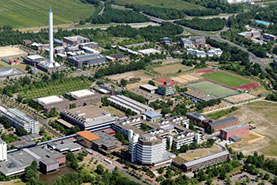
The role of our organisation in this project
The chemistry education group from UniHB developed a broad, nationally and internationally highly recognized expertise in research and curriculum development in science and sustainability education. The special emphasis in curriculum development was and is student‐active science learning through societal‐oriented science curricula, hands‐on lab activities and cooperative learning. Most of the developments in recent years were based on applying teacher‐centred and collaborative Action Research. A specific model of Participatory Action Research was developed and popularized by the group and is now applied in different fields and countries. The group will share its theoretical contributions, expertise and experiences within ARTIST and will act as a facilitator and accompanier of the professional development, research and innovation process within ARTIST. UniHB will be the coordinator of ARTIST and leader of WP 6 and 7.
Artist-Team
Prof. Dr. Ingo Eilks, Dr. Nadja Belova
Ilia State University (ISU), located in Tbilisi, Georgia, is one of the flagship public research universities in Georgia that strives for academic excellence and integrity in teaching and research. ISU’s recognition at home and abroad, amongst many of its partners worldwide is due to ISU’s unique institutional capacity that is reflected primarily, in the quality of academic staff recruited successfully throughout Georgia and beyond and secondly, in the strong focus on and commitment to research and in its distinctive ability to initiate an open, unbiased public policy discussion. Over a short period of time, ISU has emerged as one of the leading reformers in Georgian higher education system and has managed to evolve into one of the most selective universities and prestigious study destinations in the country. ISU was established in 2006 as a merger of six different institutions, each having a long history and a diverse institutional profile. ISU has four Schools – Arts and Sciences, Business, Law, and Engineering ‐ each offers distinctive training in their respective direction at three levels. ISU has about 10,000 students at all levels. Ilia State University unites 25 Research Institutes, Centres and Laboratories dispersed across the country. The diverse profile of these research institutions and laboratories create a unique opportunity for research and practice on the topics relevant to Georgia’s role and contribution to the international community. ISU community is dedicated to provide high‐quality education and facilitate rigorous research through innovative initiatives and policies.
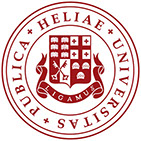
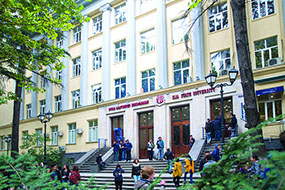
The role of our organisation in this project
The role of ISU in the project is to develop, pilot and implement the ARTIST curriculum and establish networks with schools and industries; also develop the list of the equipment together with partners and improve the teacher training facilities with new equipment for in and pre‐service teacher trainings; ISU will be one of the founder of a free access, online electronic journal ARISE and develop it; staff members of ISU will disseminate the information about the project and ensure the long term sustainability by the ARTIST curriculum going beyond the project framework. ISU will leader of WP4.
Artist-Team
Prof. Dr. Marika Kapanadze (coordinator of the project at ISU), Manana Salukvadze (financial manager of the project), Dr. Manana Varazashvili, Dr. Ekaterine Mikautadze, Ekaterine Slovinsky
The Alpen Adria Universitaet Klagenfurt (AAU) was founded in 1970 and consists of four faculties: Faculty of Interdisciplinary Studies (IFF), Faculty of Humanities (KuWi), Faculty of Technical Sciences (TeWi) and Faculty of Management and Economics (WiWi). Moreover the university can act from three sites: Klagenfurt, Graz and Vienna. Around 10,700 students from 83 countries are currently studying at the Universitaet Klagenfurt. The university has long time experience with EU projects. Around 1,500 employees strive for excellence in education, research and university management. A strategy process resulted in the development of seven cross‐faculty thematic areas: Educational Research, Energy Management & Technology, Human Centred Computing and Design, Sustainability, Self‐Organizing Systems, Entrepreneurship and Visual Culture. By defining its profile so carefully, the AAU is able to further expand its visibility and competitiveness within the international scientific community, and to earn recognition as an outstanding partner in cooperation relationships in national and international research networks. The Institute of Instructional and School Development (IUS) is part of the Faculty of Interdisciplinary Studies (IFF). The research and development activities of the IUS extend across all levels of the field of education ‐ instruction, the single school, and the educational system ‐ as well as the professionalism of teachers. The more than 20 researchers at the Institute cover expertise in a broad range of methods (quantitative, qualitative as well as action research). F. Rauch is currently one of the editors of Educational Action Research Journal. Research and development, therefore, are frequently interrelated. The IUS was and is partner of several EC‐project (like FIBONACCI, CoDeS, PROFILES, PARRISE).
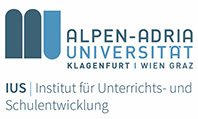
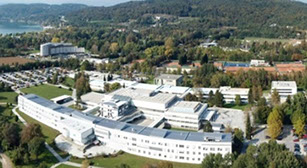
The role of our organisation in this project
The Institute of Instructional and School Development (IUS) offers participants of university courses a framework for developing their competencies by collaborating in working on professional problems. They are seen as reflective practitioners and are supported in investigating their professional practice using the methods of action research. The IUS runs currently 12 professional development university courses for teachers (one course is for science teachers). The institute conducts among others (i.e. in the fields of Education for Sustainable Development, School Leadership, Career Counselling for Teachers) the national large‐scale project IMST (Innovations in Mathematics, Science and Technology Teaching). The project involves about 7000 teachers across all Austria who participate in projects, attend conferences or cooperate in regional and thematic networks. The expertise gained in the professional development courses and the IMST project especially will be shared in ARTIST. The IUS will be leader of Work Package 1 and 2.
Artist-Team
Prof. Dr. Franz Rauch, Prof. Dr. Stefan Zehetmeier, Dr. Diana Radmann
University of Limerick, Limerick (Ireland)
The University of Limerick is an independent university established in 1989 and in this time has grown to 12,000 students, 17% of these are international students and 1,400 staff. It has a strong teacher education programme and is the largest provider of science teachers by the concurrent model. The Chemical Education Research Group (CERG) and Synthesis and Solid State Pharmaceutical Centre are located in the Dept. of Chemical and Environmental Sciences (CES) and work with the National Centre for STEM Education (EPI*STEM), which is based at UL and since 2007 has developed its brief to conduct research, provide research‐based support to the teaching of science at all levels and running CPD courses for teachers. The SSPC and CERG bring considerable expertise in science education, the promotion of science and curriculum development, and contacts with schools and industry. The SSPC has a committed Education and Outreach programme, and as such has developed school and industry connections and partnerships, with the goal of enhancing and improving science education. UL has extensive experience in science teacher training, in leading work packages and in the management.
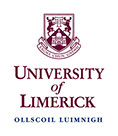
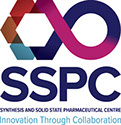
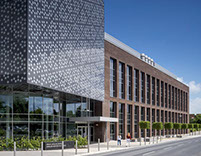
The role of our organisation in this project
UL’s role in ARTIST comprises of providing levels of expertise in key areas. A key initiative is setting up local networks between industry, SME, HEI’s and teachers. SSPC, already has a partnership with 22 industries across Ireland, and through its strong links with industry and Science Foundation Ireland, Enterprise Ireland and the Industrial Development Authority (Ireland’s key funders and stakeholders with industry) is well positioned to deliver local and national industrial networks. UL has a long history of pre‐ service science teacher education, and has strong links with schools and teachers across Ireland. UL has considerable expertise of networking with education and businesses and experience over many years in partnership activities with industries. The networks will contribute to the dissemination of ARTIST into the relevant sectors: schools and industry/SMEs. UL with its links to schools, HEI and industry partners is well placed for this role. Local management of the project and contributing to dissemination are also central priorities. To promote action research in schools and contribute to the training of teachers in schools and HEI’s are primary goals, which UL is well placed to deliver, given its major role in preservice teacher education. UL will be the leader of work package 3.
Artist-Team
Dr. Peter Childs, Dr. Sarah Hayes
Gazi Universitesi, Ankara (Turkey)
Gazi University was founded in 1926 as the first teacher training institution in the new Republic’s capital Ankara. Since then, it has grown to be the largest teacher training institution in Turkey. With more than 4000 faculty members Gazi University is among the largest research institutions in Turkey as well. Currently, more than 60,000 undergraduate and 10,000 graduate students are pursuing degrees at GU. Also more than 9000 students are enrolled in 9 departments and 26 programmes of The Gazi Faculty of Education. It has a total of 16 faculties and 6 institutes for graduate studies. Gazi University has participated in FP6 and FP7 Framework Programmes as coordinator and partner and also keen to take part in Horizon 2020. More than 1300 teacher candidates graduate each year. The programmes cover a wide range of fields from classroom teaching to IT technologies in education, science, mathematics, arts, social studies, history, language, and teaching of the handicapped. Faculty members constantly become involved in the Ministry of National Education’s projects to develop and enhance education in Turkey, including projects in Curriculum development, textbook writing for courses, and in‐service teacher training. They also coordinate and undertake graduate education through the Institute of Education and hence get involved in research in various fields of education in general, and science education in particular.
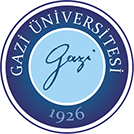
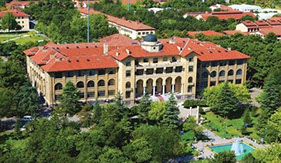
The role of our organisation in this project
The role GU will assume in ARTIST includes cooperating with other partners to create deliverables in the key areas and locally conduct series of actions to promote them and provide wide access to them by teachers and teacher candidates. GuU will work towards setting up networks between industry, SME, HEI’s and teachers in Turkey. Over the years, GU has already established partnerships with Ministry of National Education (MNE) and has continuing contracts and projects for in-service teacher education. This will play a key role for dissemination of ARTIST deliverables. Besides GU is the oldest and biggest teacher training institution in Turkey and thus has a tradition in teacher education in Turkey with strong links with teachers and schools. In addition, ARTIST proposes to launch a new academic journal for worldwide dissemination of project deliverables and arousing sustained interest in action research. For this purpose a framework and infrastructure for ARISE e-Journal (Action Research in Science Education) will be developed. With the past and current involvements of the GU faculty members in establishing and managing international peer reviewed journals GU is very well suited for this role. Also, their involvement and positions in international organizations will help fast popularization of ARISE in the global scale. Maintaining and managing the journal in the following years will also be a main task that GU will undertake. GU will lead of Work Package 5.
Artist-Team
Prof. Dr. Mehmet Fatih Taşar, Yuksel Altun, Duygu Yılmaz, Jale Ercan
Batumi Shota Rustaveli State University, Batumi (Georgia)
Please provide a short presentation of your organisation (key activities, affiliations, size of the organisation, etc.) relating to the area covered by the project (limit 2000 characters).
Batumi Shota Rustaveli State University (BSU) is an important educational, scientific and cultural centre of Georgia. It has a 80‐year‐long history. The main priorities of our university are: integration in the international educational networks, sharing the experience of leading foreign universities; improving the curricula, taking into consideration the needs of the employers while preparing the specialists; integration of academic and scientific‐research activities. BSU comprises 9 faculties. It also embraces the 3 Research Institutes. At present about 6 000 students study at the vocational, Bachelor, Master and Doctoral programmes. The academic potential, traditions and the geographical location of BSU determine the priorities of its scientific‐research activities. BSU is a multi‐functional educational and scientific institution where a unified space of academic and professional education and research is created with the cooperation of students, professors, teachers and researchers. A number of scientific‐research projects of international and national significance have been accomplished on the university base. The university has close partnership relations with the leading higher educational institutions within and outside the country. BSU is considered a desirable host for the international scientific conferences and symposia held in various fields of science. Apart from this, the academic and scientific faculty of the university actively participates in scientific conferences and exchange programmes in different countries of the world.
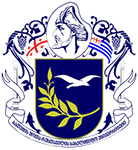
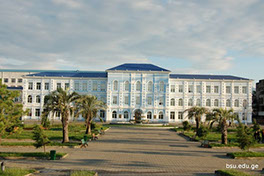
The role of our organisation in this project
Batumi Shota Rustaveli State University aims to facilitate development of competence based learning. To this end, the university will engage in the planned cooperation with local factories, e.g. Kakhaberi LLC – a dairy products manufacturer and will further ensure organizing and conducting relevant workshops, discussions and demonstrative scientific experiments for the students. Site visits, monitoring of production cycle and similar close engagement with the production process of the manufacturer will definitely encourage and elevate motivation of science learning in general. Hands‐on experience of the relevant practitioners will be transformed into practical teaching resulting in reflection of the forgoing process in the science learning curricula of various schools and universities which, in turn, would also trigger their development by Action Research.
Artist-Team
Prof. Dr. Marina Koridze, Prof. Dr. Rusudan Khukhunaishvili, Tea Koiava
Oranim Academic College of Education, (Israel)
Please provide a short presentation of your organisation (key activities, affiliations, size of the organisation, etc.) relating to the area covered by the project (limit 2000 characters).
OACE is one of the leading Academic Teachers Colleges in Israel with more than 5,500 students, 600 academic faculty and 200 administrative faculty. Oranim grants Bachelor and Master degrees as well as teaching certificates, and offers professional development for in‐service teachers. Four Faculties grant undergraduate and graduate degrees: The Faculty of Education and Teaching offers B.A. and B.Ed. degrees in Early Childhood, Elementary School, Secondary School and Special Education. The Faculty of Social Sciences and Humanities offers B.A. and B.Ed. degrees in a range of disciplines in Humanities, Social Studies and Art. The Faculty of Science, in conjunction with Haifa University, grants B.Sc. degrees in Biology, Math, Physics and Computer Science, and a B.A. in Math. The Faculty of Graduate Studies offers 9 Master degrees in Inter‐Disciplinary Studies, Educational Counselling, Youth at Risk, Language Teaching (English, Arabic, Hebrew), Educational Leadership, Science Education for High School, Mathematics and Science Education for Elementary School, Early Childhood Education and M.Teach.
Many faculty members are active participants in the global network of teachers and educational leaders. They publish in a range of disciplines in academic journals, and participate in conferences and research seminars. Many Oranim graduates continue to advanced degrees, and graduates are in demand in all fields, in schools, youth movements, educational institutions, regional and national government, non‐ profits, art, technology, science and industry. Oranim boasts a diverse student body, with Jewish and Arab students of all ages, ethnicities, religions, and socio‐economic backgrounds. Oranim’s mission is to shape Israeli society and to improve the quality of life in Israel by training educators who are leaders in their communities. Oranim offers educators guidance and support through a wide network of connections between communities. Oranim strives to serve as a national and international centre of knowledge, inquiry, and discussion, developing innovative educational ideas and methods. Through dialogue and ongoing mutual relationships, Oranim seeks to strengthen the sense of connection between the diverse cultures in Israel, and between Israel and the world at large.
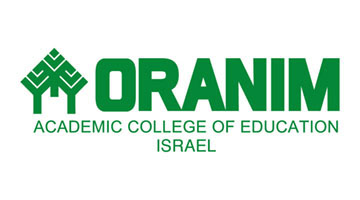
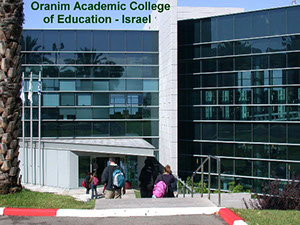
The role of our organisation in this project
The Faculty of Graduate Studies in the College provides the highest level of academic and professional training, and addresses a range of educational, pedagogical and social dilemmas and topics. Master Degree programmes are for individuals who seek professional and intellectual advancement with an emphasis on practical implementation, and come from the fields of education and teaching. The Faculty works to develop graduates who are knowledgeable, intellectually curious, mature and socially responsible, and have the highest personal ideals and values. The M.Ed. programme in Science Education provides expert academic and pedagogical training in the fields of Math, Physics, Biology, Science and Technology for In‐service High School teachers. It trains them to be expert leading teachers, skilled in curriculum development and able to head science programmes in schools. In this framework, teachers are encouraged to perform action research in order to evaluate their own teaching. Experiences and techniques will be shared in the project and corresponding courses and activities shall be further developed.
Artist-Team
Prof. Ricardo Trumper (Head of the Team), Dr. Rachel Cohen, Dr. Amos Cohn, Dr. Osnat Eldar, Dr. Iris Gershgoren, Dr. Shirley Miedijensky
The Academic Arab College for Education, Haifa (Israel)
Our college is the largest academic institution in the Arab sector in Israel. The college is the central institute for training of teachers in Israel in most fields and the only Arab college which educates teachers for middle schools. Today, there are about 3500 students "pre‐service and in‐service" who are studying at the college and there are over 200 lecturers. Recently, the college launched 4 M.Ed. programmes: linguistic‐ cultural education, teaching & learning, learning disabilities and science education. The last programme is intended to help science teachers to improve and develop their knowledge and skills in different aspects of science education, to provide them with the relevant pedagogy in their work, and to equip them with the necessary skills that are required in their career as science teachers and leaders of the field at schools and the education system in general. Our college is very active in the field of science education and we have organized several science conferences and workshops, i.e., New Horizons in Science Education 2009, celebrating the international chemistry year 2011 and the SALiS training at 2012, New Horizons for Teaching Science 2013, and Science Education and Green Chemistry for Sustainable Future 2015.
One of the most active centres and departments in our college is the unit of research and assessment which is intended to improve the research work at the college not only for lecturers but also for trainees. Also the professional development department for in‐service is very active and hundreds of trainees attend our special courses for action research, entrepreneurship and Initiative.
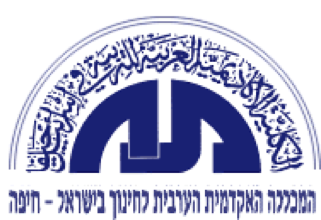
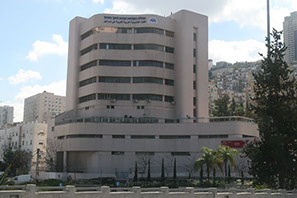
The role of our organisation in this project
Most science teachers in primary, middle and high schools in the Arab sector in Israel teach science with limited experiments, demonstrations and simulation for their students. The main reason for this is that they have a problem with research and prefer traditional frontal methods of teaching. This reduces the motivation for students to learn science and the result is fewer students chose to learn sciences in universities and higher education institutions, especially in the Arab sector. As a partner in the ARTIST project, we can help many of our in‐service "and pre‐service" teachers to practice action research in their classrooms to improve science education and make it more relevant for the students by focusing on career orientation and the application of science in businesses and industry. In our college we have a distinguished young team from all science fields with a high motivation, who have the potential and the ability to succeed in the implementation of this attractive, unique and challenging project. Recently, our team is became involved in action research studies in collaboration with partners from the Weizmann Institute of Science.
Artist-Team
Prof. Dr. Muhamad Hugerat (Manager), Dr. Ahmad Basheer (Local Coordinator), Dr. Naji Kortam, Dr. Riam Abu-Mukh, Dr. Naim Najami, Mr. Salem Saker, Dr. Fadeel Joubran, Dr. Naela Asadi and Mr. Sami Abu Sharkia
The Ateneo de Manila University is a Catholic and Jesuit institution located in different campuses in Metro Manila, Philippines. It offers basic education, undergraduate, graduate and post graduate programmes. The whole student population is approximately 18,000, with approximately 700 faculty and staff. Basic education, graduate and undergraduate programmes are offered at the Loyola Schools: Grade School, Junior High School, and Senior High School for the Basic Education and the Gokongwei School of Management, the School of Science and Engineering, the School of Humanities and the School of Social Sciences for the undergraduate and graduate programmes. Post graduate studies are offered at the Ateneo Professional Schools: School of Business, School of Government, School of Medicine and Public Health and the Law School. There are also Centres and Institutes within the organization like, Centre for Asian Studies, Ateneo Centre for English Language Teaching, Institute of Philippine Culture, etc. The President heads the university and there are seven vice‐presidents. Each School is administered by a Dean. The Departments under each School are run by the Chairs. Under the current administration there are three priority areas to chart the direction of the future: mission and identity, nation building and environment and development.
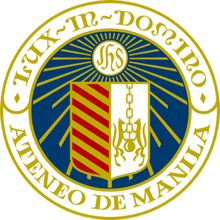
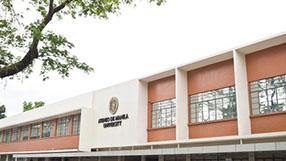
The role of our organisation in this project
The Philippines has recently adopted a new Basic Education curriculum wherein two more years were added to what used to be a ten‐year Basic Education. During the last two years, called the senior high school, the students have the option to take a technical‐vocational track wherein they can find employment upon graduation or an academic track wherein they can proceed to university education upon graduation. The courses offered in the academic track are what used to be first two years of fundamental college‐level courses. The shift to the new curriculum is laden with challenges especially in the senior high school science courses. Among these challenges are (a) the retraining of high school teachers so that they can teach higher‐level science courses; (b) development good science laboratories and experiments; (c) creation of a coherent sequencing of science topics and developmentally appropriate method of presentation; and (d) the development of new standard assessment tools based on a spiral curriculum. From this project we therefore expect the following outcomes:
- Review of the current science education programmes, with inputs from the partner universities (e.g. Ilia University and University of Bremen), in order for these programmes to be cognizant to the challenges of the new Basic Education System.
- Incorporate action research in the curriculum and utilise it for curriculum innovation.
- Development of courses which would empower the graduate students to perform research‐ based innovations in teaching in their respective classes.
Artist-Team
Mr. Ivan Culaba, Dr. Joel Tiu Maquiling, Dr. Maria Obiminda Cambaliza, Ms. Johanna Mae Indias
De la Salle University, Manila (Philippines)
De La Salle University is a Catholic coeducational institution founded in 1911 by the Brothers of the Christian Schools. The University is a hub for higher education, offering programmes in the graduate (doctoral and master's) and undergraduate (bachelor) levels. There are about 20,000 undergraduate (~16,000) and graduate (~4,000) students, while there are about 1,000 teaching academic staff. There are 8 schools and colleges, namely, the Br. Andrew Gonzalez College of Education, College of Computer Studies, College of Law, College of Liberal Arts, College of Science, Gokongwei College of Engineering, Ramon V. del Rosario College of Business, and the School of Economics. A total of 36 departments are under these colleges. There are 11 research centres, namely, the Advanced Research Institute for Informatics, Computing and Networking, Angelo King Institute for Economic Research and Development, BNS Creative Writing Centre, BASFSC Ocean Research Centre, Centre for Business Research and Development, Centre for Engineering and Sustainable Development Research, Centre for Natural Sciences and Environmental Research, DLSU Food Institute, JMR Institute of Governance, Lasallian Institute for Development and Educational Research, and Social Development Research Centre.
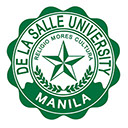
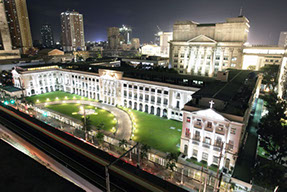
The role of our organisation in this project
As a university in South-east Asia, we can act as a hub for implementation of the project in this region. Our science education programmes in the masters and doctoral levels can serve as the platform for the evaluation of efficacy and applicability of the developed modules for science teachers. Through the participation of our graduate students (science teachers) richer and more diverse data can be obtained that can lead to further enhancement of modules. Through the university's extensive connections with the different higher education institutes across the country, a vast network of teacher researchers as well as education administrators nationwide can be set up.
Artist-Team
Dr. Lydia Roleda, Prof. Dr. Maricar Prudente, Dr. Minie Rose Lapinid, Prof. Dr. Socorro Aguja

Imprint - Data protection - Copyright 2016-2019 Artist.
